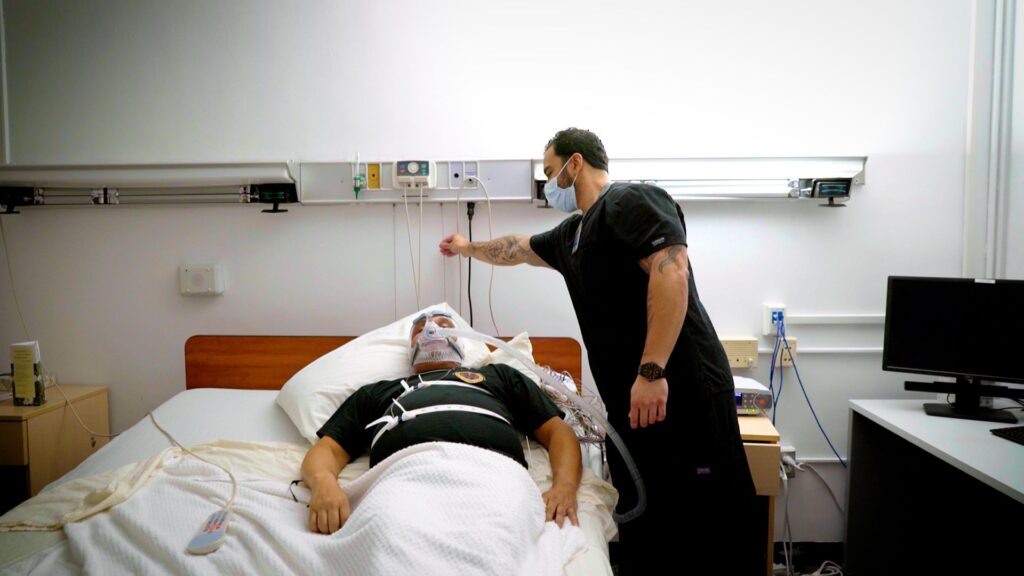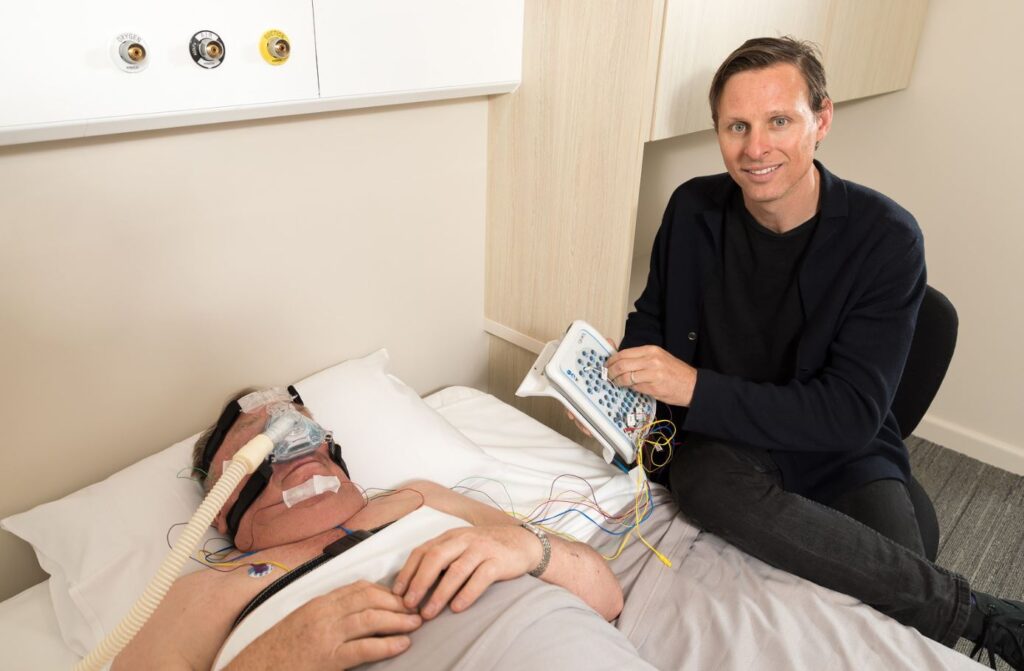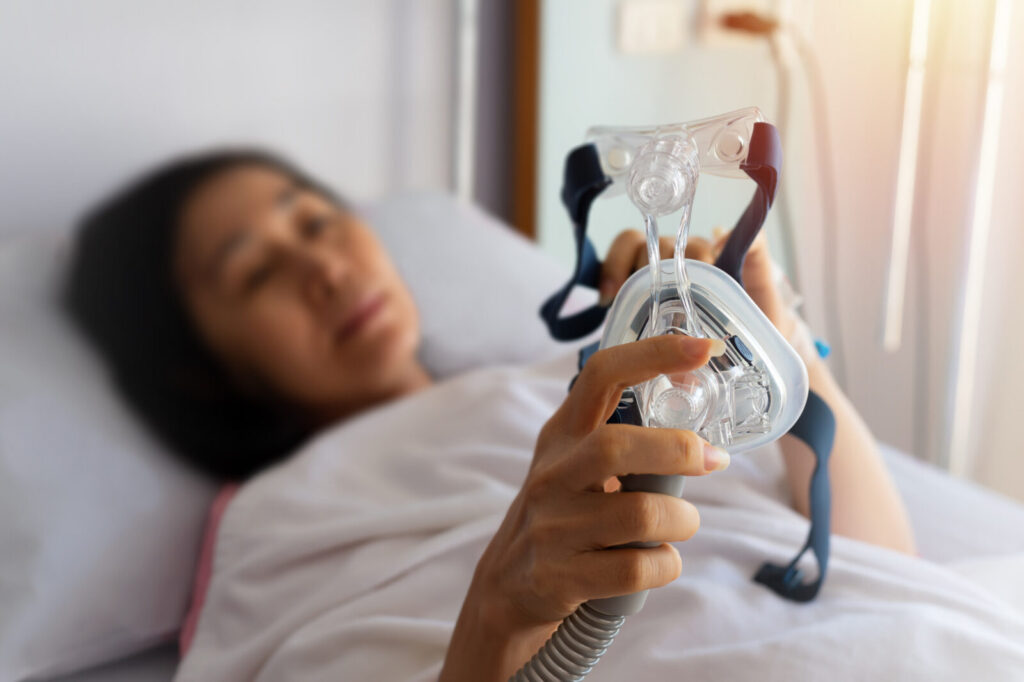Sleep apnea affects millions of Australians, disrupting peaceful nights and impacting daily life. This serious sleep disorder causes breathing interruptions during sleep, leading to reduced oxygen levels and fragmented rest patterns. The effects extend beyond poor sleep quality – untreated sleep apnea increases the risk of cardiovascular disease, diabetes, and cognitive decline.
Accurate diagnosis through sleep apnea testing stands as a critical first step toward effective treatment. Medical professionals in Adelaide offer two primary testing methods: traditional in-clinic sleep studies and modern home-based sleep tests. Each approach presents distinct advantages and considerations for patients seeking answers about their sleep health.
This comprehensive guide examines both testing options available in Adelaide, including the sleep study which is a popular choice among patients. We will break down the essential differences between in-clinic polysomnography and home sleep studies. Understanding these distinctions helps patients make informed decisions about their diagnostic journey, taking into account factors such as comfort, convenience, and specific medical requirements.

Understanding Sleep Apnea
Sleep apnea affects approximately 5-10% of Australians, characterised by repeated breathing interruptions during sleep. These interruptions can occur hundreds of times per night, with each pause lasting from a few seconds to minutes.
Three distinct types of sleep apnea exist:
- Obstructive Sleep Apnea (OSA): The most common form, caused by physical blockage of the airway
- Central Sleep Apnea: Results from the brain failing to signal breathing muscles
- Complex Sleep Apnea: A combination of both obstructive and central sleep apnea
How Obstructive Sleep Apnea Works
OSA occurs when throat muscles relax excessively during sleep, causing the airway to collapse or become blocked. This physical obstruction leads to interrupted breathing patterns and decreased oxygen levels in the blood.
Common Symptoms of OSA
Common symptoms of OSA include:
- Loud, chronic snoring
- Gasping or choking during sleep
- Morning headaches
- Excessive daytime sleepiness
- Difficulty concentrating
- Irritability and mood changes
Health Risks of Untreated OSA
Untreated OSA poses significant health risks:
Learn more on: Bulk-Billed Sleep Studies in Adelaide What You Need to Know
- Cardiovascular complications: High blood pressure, heart disease, stroke
- Metabolic issues: Type 2 diabetes, weight gain
- Mental health effects: Depression, anxiety
- Cognitive decline: Memory problems, reduced decision-making ability
- Increased risk: Workplace accidents, motor vehicle incidents
The severity of these health risks emphasises the critical importance of proper diagnosis through sleep studies, enabling appropriate treatment plans to be established.
In-Clinic Sleep Study: The Gold Standard for Diagnosis
Polysomnography conducted in a sleep laboratory represents the most comprehensive method for diagnosing sleep disorders. This sophisticated diagnostic procedure monitors multiple body functions during sleep, providing detailed insights into sleep patterns and potential breathing disruptions.
During an overnight stay at a sleep lab, patients sleep in a private room designed to replicate a comfortable bedroom environment. The testing process involves the placement of several non-invasive sensors:
- Brain activity monitors – Small electrodes attached to the scalp track sleep stages and patterns
- Heart rate sensors – Electrodes on the chest measure cardiac activity
- Breathing monitors – Elastic bands around the chest and abdomen record respiratory effort
- Oxygen sensors – A small device attached to the finger measures blood oxygen levels
- Movement sensors – Electrodes on the legs detect periodic limb movements
- Audio recording – Microphones capture snoring patterns and intensity

A trained sleep technologist monitors these measurements throughout the night from a separate room. The extensive data collected helps identify: Learn more about measurements on https://edu.korea.edu/edu_en/test/EMS.do
- Sleep architecture and efficiency
- Breathing patterns and anomalies
- Heart rate variations
- Blood oxygen fluctuations
- Body position changes
- Snoring intensity
The controlled environment of a sleep laboratory enables technicians to adjust monitoring equipment as needed and intervene if any medical concerns arise during the study. This level of supervision makes in-clinic polysomnography particularly suitable for patients with complex medical conditions or severe sleep symptoms.
If you are located in Australia, you can consider various options for sleep studies in Perth, Brisbane, Melbourne, or Sydney.
Home Sleep Study: A Convenient Alternative
Home sleep studies represent a significant advancement in sleep apnea diagnosis, offering patients the ability to undergo testing in their familiar sleeping environment. These self-administered tests utilise portable monitoring equipment designed for ease of use while maintaining diagnostic accuracy.
Key Components of a Home Sleep Study
The key components of a home sleep study include:
- A small recording device worn on the chest
- Nasal cannula to measure airflow
- Finger probe for oxygen levels
- Elastic bands around the chest and abdomen
How Home Sleep Studies Differ from In-Clinic Tests
Home sleep studies differ from in-clinic tests through their focused approach to data collection. While collecting fewer parameters than polysomnography, these tests capture essential measurements for sleep apnea diagnosis:
- Breathing patterns
- Blood oxygen levels
- Heart rate
- Sleep position
Advantages of Choosing a Home Sleep Study
The advantages of choosing a home sleep study include:
- Natural sleep environment: Patients sleep in their own bed, resulting in more representative sleep patterns
- Cost-effective solution: Reduced expenses without overnight facility fees
- Immediate availability: Shorter waiting times compared to sleep lab appointments
- Flexible scheduling: Tests can be conducted any night of the week
- Family comfort: Patients remain close to family members
Air Liquide Healthcare – Sleep Solutions provides comprehensive support for home sleep studies in Adelaide, ensuring patients receive proper guidance on equipment use and test procedures. The portable monitoring equipment meets Australian standards for diagnostic testing, delivering reliable results for sleep apnea assessment.
Moreover, if you’re located in Hobart or Canberra and seeking similar services, home sleep studies in Hobart and home sleep studies in Canberra are also available, providing the same level of convenience and diagnostic accuracy.
Factors to Consider When Choosing Between In-Clinic and Home Studies
Selecting the appropriate sleep study method requires careful consideration of several key factors:
Health Complexity
- Patients with complex medical conditions, including heart disease, neurological disorders, or severe respiratory issues may benefit from in-clinic monitoring
- Those with suspected sleep disorders beyond OSA should opt for in-clinic studies
- Individuals with straightforward symptoms of OSA are often suitable candidates for home testing
Personal Circumstances
- Sleep environment preferences – some patients sleep better in their own beds
- Work schedules and family commitments that make overnight stays challenging
- Mobility issues that affect travel to sleep clinics
- Comfort level with medical settings
Financial Aspects
- Medicare rebates availability for eligible patients
- Private health insurance coverage
- Out-of-pocket expenses for each option
- Additional costs such as travel and accommodation for in-clinic studies
Technical Requirements
- Ability to operate home testing equipment independently
- Access to reliable internet for data transmission
- Physical capability to attach sensors correctly
- Support person availability if needed for home testing
Comparing the Accuracy and Reliability of Test Results
In-clinic sleep studies provide comprehensive data collection through advanced monitoring equipment and direct observation by sleep technicians. These studies measure multiple parameters simultaneously: To learn more about monitoring click here.
- Brain activity (EEG)
- Eye movements
- Heart rate and rhythm
- Blood oxygen levels
- Breathing patterns
- Body position
- Muscle activity
Home sleep studies, while more limited in scope, demonstrate reliable accuracy for diagnosing moderate to severe sleep apnea. These tests focus on essential measurements:
- Airflow
- Breathing effort
- Blood oxygen levels
- Heart rate
Research indicates that home sleep studies achieve 85-95% accuracy compared to in-clinic polysomnography when used for appropriate candidates. The cost difference between the two methods is significant, with home studies typically costing one-third of in-clinic tests.
Trained sleep professionals play a crucial role in data interpretation for both testing methods. Sleep physicians analyse the collected information to:
- Identify sleep apnea severity
- Determine appropriate treatment options
- Detect other potential sleep disorders
- Create personalised treatment plans
The presence of sleep technicians during in-clinic studies allows for immediate adjustment of monitoring equipment and real-time observation of sleep patterns. Home studies rely on automated recording systems, which may require repeat testing if technical issues occur during the night.
Follow-Up Care: Ensuring Comprehensive Management of Sleep Apnea
Receiving a diagnosis of sleep apnea is just the start of your journey towards better health. From this point on, you’ll be working closely with certified sleep specialists who will create personalised treatment plans for you. These plans will be tailored to the specific type and severity of sleep apnea identified during your testing.
What to Expect in Your Follow-Up Care
The follow-up care process typically includes:
- Regular monitoring appointments to assess treatment effectiveness
- Adjustment of CPAP settings for optimal therapy results
- Assessment of equipment functionality and maintenance needs
- Evaluation of symptom improvements and quality of life changes
When Additional Testing May Be Necessary
In some cases, additional testing may be required to:
- Fine-tune treatment parameters
- Monitor progress and treatment response
- Address any persistent symptoms
- Evaluate the need for alternative treatments
The Importance of Patient Engagement
As a patient, your active involvement is crucial for successful management of sleep apnea. During your follow-up visits, sleep specialists will provide education on:
- Lifestyle modifications that can complement your treatment
- Proper use and care of your CPAP equipment
- Maintenance protocols to ensure optimal performance of your devices
By understanding and implementing these strategies, you’ll be better equipped to support your own treatment journey and enhance the effectiveness of your therapy.
The Benefits of Regular Follow-Up Care
Integrating regular follow-up care into your management plan has several advantages:
- Early identification and resolution of potential challenges or barriers to treatment adherence
- Continuous monitoring of your progress and response to therapy
- Opportunity for open communication with your healthcare team regarding any concerns or questions you may have
These factors contribute to improved treatment adherence, which in turn leads to long-term health benefits such as reduced daytime sleepiness, enhanced cognitive function, and better overall quality of life.
Air Liquide Healthcare – Sleep Solutions: Your Partner in Sleep Apnea Testing and Treatment in Adelaide
Air Liquide Healthcare – Sleep Solutions is Australia’s largest provider of sleep apnea services, offering comprehensive diagnostic and treatment solutions in Adelaide. Our approach, endorsed by Sleep Physicians, ensures that patients receive personalised care from diagnosis to ongoing management.
We offer a range of services, including:
- Medicare-covered diagnostic testing
- Home-based sleep studies with non-invasive recording
- CPAP therapy initiation and customised titration programs
- Regular check-ups and ongoing support
Our extensive network includes trusted sleep brands such as SNORE Australia, Healthy Sleep Solutions, and Sleep Disorder Australia (SDCA). This partnership ensures that our patients receive expert care supported by leading CPAP equipment manufacturers and experienced healthcare professionals.

